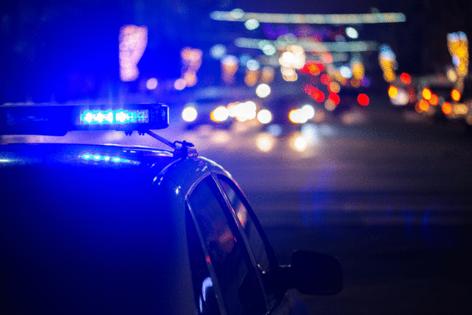In reversal, more areas allow high-speed police chases
Published in News & Features
During several years of efforts to refine policing tactics — ranging from mandating body-worn cameras to limiting or banning excessive use of force — many states and law enforcement agencies nationwide imposed more restrictive car chase policies to protect civilians and officers.
Now, state legislators and some local and state agencies are turning back the dial, moving to relax the rules on high-speed vehicular pursuits largely because of concerns about crime, according to news reports and a review of testimony by Stateline.
A handful of jurisdictions have rolled back restrictions over the past year, including Florida, the District of Columbia, San Francisco and Washington state. On the other side, Michigan restricted chases, and Hawaii also is considering legislation that would set more restrictive statewide pursuit standards.
Policing experts suggest that state legislative changes nationwide have been influenced by various factors, such as political pressure or high-profile incidents. They expressed doubt that allowing more high-speed chases would significantly lower crime.
“Most people comply with the police voluntarily anyway, and most people are probably not aware of their local agencies’ pursuit policies,” Jacinta Gau, a criminal justice professor at the University of Central Florida and a police-community relations expert, told Stateline. “I don’t think it would have an appreciable impact on any sorts of crime.”
Some policing experts and former law enforcement officers say it’s important to strike a balance between apprehending potentially violent suspects and protecting the public from traffic accidents.
“It’s a very delicate balance,” said Rodney Bryant, a former Atlanta police chief, in an interview. Bryant is now the president of the National Organization of Black Law Enforcement Executives. “One of the things that chiefs or policymakers have to take into consideration as it relates to [pursuits] is what harm happens if the person is not caught right then. … And there’s also the victim’s perspective.”
In mid-March, aiming to limit chases, the Michigan State Police began restricting pursuits only to situations in which troopers have probable cause to believe the driver or occupant of a fleeing vehicle has committed a violent or life-threatening felony.
In contrast, the Florida Highway Patrol recently loosened its pursuit policy. Previously, chases were restricted to felony offenses, reckless driving or DUIs. The new policy grants officers more discretion to initiate chases, removes guidelines about following posted speed limits, authorizes troopers on motorcycles to participate in pursuits, and allows troopers to drive on the wrong side of the road or in the wrong direction.
The Florida Highway Patrol declined Stateline’s interview request, but the agency said in a statement that its troopers are “some of the most highly trained and experienced law enforcement officers in the nation when it comes to pursuit and vehicle operations.”
...continued
©2024 States Newsroom. Visit at stateline.org. Distributed by Tribune Content Agency, LLC.







Comments